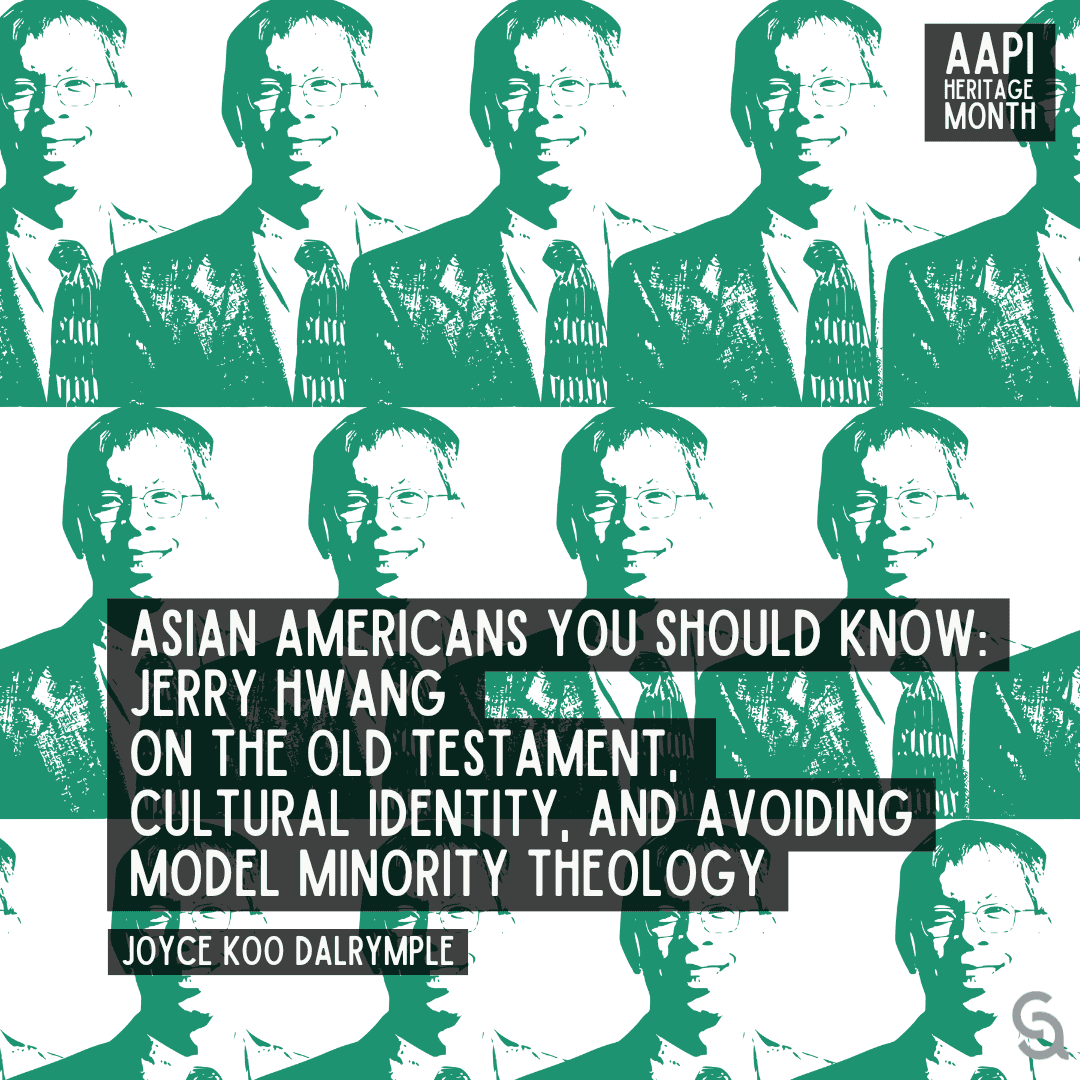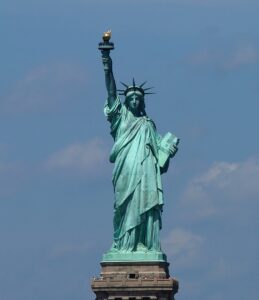 Editor’s note: May is AAPI Heritage Month, formally known as Asian American, Native Hawaiian, and Pacific Islander Heritage Month. Throughout this month, we’re featuring Q&As with some of today’s leading thinkers and activists in a series we call “Asian Americans You Should Know.” This series was curated by pastor and author Joyce Koo Dalrymple. You can read the first Q&A with Dr. May Young here and the second interview with Dr. Gabriel Catanus here. Today, we hear from Dr. Jerry Hwang, an Old Testament scholar and author whose work bridges Western and Asian cultural lenses to illuminate Scripture in new ways. See his full bio below.
Editor’s note: May is AAPI Heritage Month, formally known as Asian American, Native Hawaiian, and Pacific Islander Heritage Month. Throughout this month, we’re featuring Q&As with some of today’s leading thinkers and activists in a series we call “Asian Americans You Should Know.” This series was curated by pastor and author Joyce Koo Dalrymple. You can read the first Q&A with Dr. May Young here and the second interview with Dr. Gabriel Catanus here. Today, we hear from Dr. Jerry Hwang, an Old Testament scholar and author whose work bridges Western and Asian cultural lenses to illuminate Scripture in new ways. See his full bio below.
Joyce Koo Dalrymple: Was there anything in your experience as an Asian American that drew you to your area of research?
Dr. Hwang: One of my current research areas explores how ethnicity, race, and the Old Testament intersect. Some of the earliest categories the West used to interpret the non-Western “other” were drawn from the Hebrew Scriptures—passages like the “Table of Nations” in Genesis 10, for example. The idea that all people descend from Shem, Ham, and Japheth still shows up today, not just in Western Christian thought, but even in many Asian Christian contexts.
As a bilingual Asian American, I began reading both the Chinese Bible and Chinese biblical scholarship. That’s when I noticed how some ethnic Chinese Christians wrongly believe the “curse of Canaan” in Genesis 9 refers to marginalized groups like Black or Muslim communities. These misinterpretations often lead to racism cloaked in biblical language—and that deeply shaped my commitment to bringing historical and cultural clarity to Scripture.
Dalrymple: In seminary, I didn’t read any books by Asian theologians. Why is it important to have Asian or Asian American theologians?
Dr. Hwang: Old Testament scholarship developed alongside Western civilization—for better or worse. Asian and Asian American scholars bring cultural intelligence that can bridge the best of Western academic rigor with the lived realities of non-Western worldviews.
There’s a real need for people who belong to more than one cultural story. We can appreciate the “meat” of Western scholarship while also spitting out the “bones” of its Eurocentric assumptions. Take, for example, Daniel Wu’s work on honor, shame, and guilt in the Old Testament—his insights are deeply grounded in both biblical studies and cultural nuance. That kind of scholarship can reshape the field.
Dalrymple: What are you working on now? What can people look forward to from you?
Dr. Hwang: Right now, I’m editing a book called The Old Testament Around the World, which complements Baker Academic’s recent New Testament Around the World. This project brings together 26 Old Testament scholars from across the globe, all of whom are doing incredible work contextualizing Scripture in their unique settings.
It’s been deeply energizing to collaborate with these voices—scholars who fully bring their cultural and linguistic selves into their study of Scripture. Lord willing, the book will be released in 2027.
Dalrymple: What should non-Asian people know about the experience of Asian American theologians?
Dr. Hwang: Not everything that feels foreign in Scripture is actually strange to Asian or Asian American readers. The Bible was written in ancient West Asia—not Europe—so many of its key concepts are quite familiar to Asian cultures: patronage, ancestorhood, primogeniture, karma or retribution, and belief in the supernatural, to name just a few.
For Asian American theologians, engaging these biblical concepts is often less about translation and more about re-claiming what we’ve always known—through the lens of faith.
Dalrymple: Today, many Asian Americans are leading evangelical institutions—NAE, InterVarsity, The Gospel Coalition, Bread for the World, Lausanne. What do you think Asian Americans are contributing in this moment?
Dr. Hwang: Honestly, I approach this question with caution. I’ve heard celebratory talk about Asian Americans holding leadership roles, but sometimes it slips into a kind of triumphalism—casting us as a new “Christian model minority” or “God’s whiz kids.” These are just rebranded stereotypes, and they come with real risks.
Instead, I think Asian American Christians are simply overdue to be part of the broader theological conversation. Our churches have been rooted and growing in the U.S. for decades. Being treated as “perpetual foreigners” has actually helped many of us stay connected to our cultural roots—and that’s a strength. Life on the margins can give us a clearer vision of God’s upside-down kingdom, where “the weakness of God is stronger than human strength” (1 Cor. 1:25).
 Jerry Hwang (PhD, Wheaton College) is an American-born Chinese Old Testament scholar and theologian. He has held faculty and leadership positions at Singapore Bible College and Trinity Christian College (Chicago). His recent books include Commentaries on Hosea (Zondervan, 2021) and Jeremiah (Crossway, 2022), as well as Contextualization and the Old Testament: Between Asian and Western Perspectives (Langham, 2021). His academic work explores the intersection of mission studies, culture, and the Old Testament.
Jerry Hwang (PhD, Wheaton College) is an American-born Chinese Old Testament scholar and theologian. He has held faculty and leadership positions at Singapore Bible College and Trinity Christian College (Chicago). His recent books include Commentaries on Hosea (Zondervan, 2021) and Jeremiah (Crossway, 2022), as well as Contextualization and the Old Testament: Between Asian and Western Perspectives (Langham, 2021). His academic work explores the intersection of mission studies, culture, and the Old Testament.


